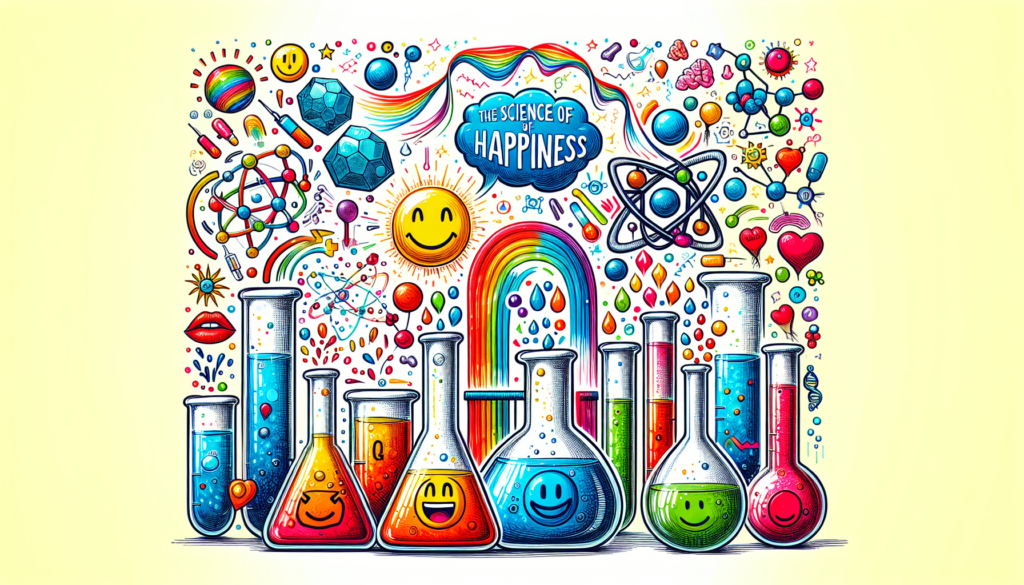The Science of Happiness: A Comprehensive Exploration
When we think about what truly matters in life, one concept that often rises to the top is happiness. The pursuit of happiness is a universal quest that transcends age, culture, and time. But what exactly is happiness, and is there a science behind it? In this article, we delve into ‘The Science of Happiness’, exploring the intricacies of this elusive yet essential emotion.
What is Happiness?
Happiness is often defined as a mental or emotional state of well-being characterized by positive or pleasant emotions ranging from contentment to intense joy. It is a complex and multifaceted concept that encompasses a variety of elements, including positive emotions, life satisfaction, fulfillment, and overall well-being. While happiness is subjective and can vary from person to person, researchers have identified certain factors that contribute to and influence our happiness levels.
One of the most well-known theories of happiness is the hedonic treadmill, which suggests that humans have a baseline level of happiness to which they eventually return, regardless of positive or negative events in their lives. This theory implies that external factors such as wealth, success, or possessions may only bring temporary boosts in happiness, highlighting the importance of internal factors like mindset and attitude in sustaining long-term happiness.

The History of Happiness
The quest for happiness is not a new phenomenon; in fact, the pursuit of happiness has been a central theme in philosophical and religious traditions throughout history. From the ancient Greek philosophers like Aristotle, who believed that happiness was the ultimate goal of human existence, to the teachings of Eastern philosophies like Buddhism, which emphasize inner peace and contentment, the concept of happiness has been explored and revered for centuries.
In the modern era, the study of happiness has evolved into a scientific discipline known as positive psychology. Positive psychology focuses on understanding and promoting factors that contribute to human flourishing, with happiness being a central component of well-being. Researchers in this field use empirical methods to investigate the biological, psychological, and social determinants of happiness, shedding light on what makes us truly happy.
The Science Behind Happiness
Neuroscience has played a crucial role in uncovering the biological mechanisms underlying happiness. Research has shown that certain brain chemicals, such as dopamine and serotonin, play a key role in regulating mood and emotions. Activities like exercise, socializing, and acts of kindness have been found to boost the production of these ‘feel-good’ chemicals, leading to increased feelings of happiness and well-being.
Moreover, studies have found a strong correlation between happiness and physical health. People who report higher levels of happiness tend to have lower rates of stress, depression, heart disease, and other illnesses. The mind-body connection is a powerful one, highlighting the importance of emotional well-being in maintaining overall health.
The Importance of Relationships
One of the most significant factors influencing our happiness levels is the quality of our relationships. Research has consistently shown that social connections and supportive networks play a crucial role in promoting well-being and happiness. Strong relationships provide a sense of belonging, security, and purpose, all of which contribute to our overall happiness.
Studies have also found that acts of kindness and altruism can have a profound impact on our happiness. Helping others not only benefits the recipient but also boosts the giver’s own sense of well-being and satisfaction. This phenomenon, known as the helper’s high, underscores the interconnectedness of happiness and compassion.
The Pursuit of Meaning and Purpose
While momentary pleasures and material possessions can bring temporary happiness, long-lasting fulfillment often comes from a deeper sense of meaning and purpose in life. Psychologist Viktor Frankl, in his seminal work ‘Man’s Search for Meaning’, argued that the search for meaning is a fundamental human motivation that can sustain us through even the most challenging circumstances.
Having a sense of purpose and working towards meaningful goals have been linked to increased levels of happiness and life satisfaction. Whether it’s pursuing a passion, making a difference in the world, or cultivating meaningful relationships, finding a sense of purpose can enrich our lives and enhance our overall well-being.
The Role of Mindfulness and Gratitude
Mindfulness, the practice of being fully present and engaged in the moment, has gained popularity in recent years for its positive effects on mental health and happiness. Mindfulness techniques, such as meditation and deep breathing, have been shown to reduce stress, anxiety, and depression while increasing feelings of gratitude and contentment.
Cultivating a sense of gratitude is another powerful way to boost happiness levels. Research has shown that expressing gratitude and focusing on the positive aspects of life can lead to increased feelings of happiness and well-being. Keeping a gratitude journal, writing thank-you notes, or simply reflecting on the things we are grateful for can all contribute to a greater sense of happiness.
Expert Opinions
According to renowned positive psychologist Dr. Martin Seligman, happiness is not just the absence of negative emotions but a state of flourishing that encompasses positive emotions, engagement, relationships, meaning, and accomplishment. Seligman’s PERMA model of well-being highlights these five essential elements of happiness and serves as a roadmap for cultivating a fulfilling and meaningful life.
Psychologist Mihaly Csikszentmihalyi introduced the concept of flow, a state of deep concentration and complete absorption in an activity, as a key factor in happiness. When we are in a state of flow, we experience a sense of timelessness, effortless focus, and intrinsic motivation, leading to feelings of happiness and fulfillment.
Common Misconceptions
One common misconception about happiness is that it is solely dependent on external factors such as wealth, success, or material possessions. While these factors can certainly contribute to our happiness in the short term, research has shown that they have limited long-term effects on our overall well-being.
Another misconception is that happiness is a constant state that can be achieved and maintained indefinitely. In reality, happiness is a dynamic and ever-changing emotion that fluctuates in response to internal and external factors. Embracing the ebb and flow of emotions is key to cultivating a healthier relationship with happiness.
FAQs
Q: Can happiness be measured objectively?
A: While happiness is a subjective experience, researchers have developed various scales and questionnaires to assess and quantify different aspects of happiness, such as life satisfaction, positive emotions, and well-being.
Q: Are some people naturally happier than others?
A: Genetics, upbringing, and life circumstances can influence our baseline levels of happiness, but research suggests that happiness is a skill that can be cultivated and enhanced through intentional practices and mindset shifts.
Conclusion
In conclusion, ‘The Science of Happiness’ offers us a fascinating glimpse into the intricate workings of our emotions and well-being. While happiness may seem elusive at times, the research and insights provided by positive psychology shed light on the factors that contribute to our happiness and fulfillment.
By understanding the biological, psychological, and social determinants of happiness, we can take proactive steps to enhance our well-being and lead more meaningful and satisfying lives. Cultivating strong relationships, finding a sense of purpose, practicing mindfulness, and expressing gratitude are just a few of the many ways we can nurture our happiness and create a brighter future for ourselves and those around us.
As we navigate the complexities of life, let us remember that happiness is not a destination to reach but a journey to embrace. By embracing the science of happiness and incorporating its principles into our daily lives, we can cultivate a deeper sense of joy, contentment, and fulfillment that will sustain us through the highs and lows of life.
So, as we embark on this journey towards greater happiness and well-being, let us remember the words of Dalai Lama: “Happiness is not something ready-made. It comes from your own actions.” Let us take action today to create a happier and more fulfilling tomorrow.


